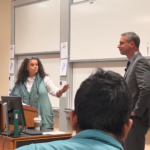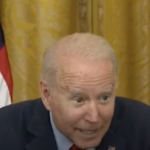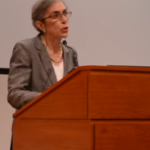Incredible Disappearing Research Paper
PRINCETON, NJ (October 14, 2010)—The National Association of Scholars (NAS) has published a long-buried study on the state of the history research paper in American high schools. The 2002 study sponsored by The Concord Review (TCR) went unpublished when its benefactor, the Albert Shanker Institute, found the results unflattering to high school teachers.
In commissioning the study, TCR founder Will Fitzhugh sought to find out why American high schools aren’t doing a better job of teaching students to write—specifically, why so few teachers assign major research papers. 95 percent of teachers surveyed believed that research papers are important, but 62 percent never assigned extended-length essays.
According to the report, the biggest barriers to teachers are time and class size. Most teachers said that grading papers took too much personal time, and that not enough time was provided for this in the school day. Teachers surveyed taught an average of 80 students each. Assigning a 20-page paper then means having 1,600 pages to grade. The Concord Review urged high schools to support teachers by providing more time for them to grade papers.
Fitzhugh considered what may be lost if most high school history teachers never assign a long research paper:
It may very well mean that a majority of our high school students never read a complete nonfiction book on any subject before they graduate. They may also miss the experience of knowing a fair amount about some important topic—more, for instance, than anyone else in their class. They may also miss a fundamental step in their preparation for demanding college work.
“This is an important study, even eight years later,” said Peter Wood, NAS president. “It sheds light on a problem that keeps getting worse and reverberates through college and employment. American high schools should take heed from this study to change its ways and make research paper-writing a priority.” In an introduction to the study, Wood wrote, “[NAS’s] interest in this is part of our broader goal of rebuilding the basis for genuine liberal arts education in the United States.”
The National Association of Scholars advocates for higher education reform. To learn more about NAS, visit www.nas.org.
Ashley Thorne is the Director of Communications for the National Association of Scholars




